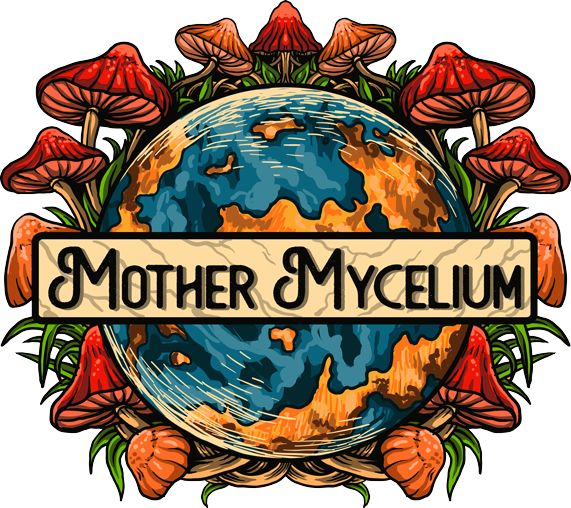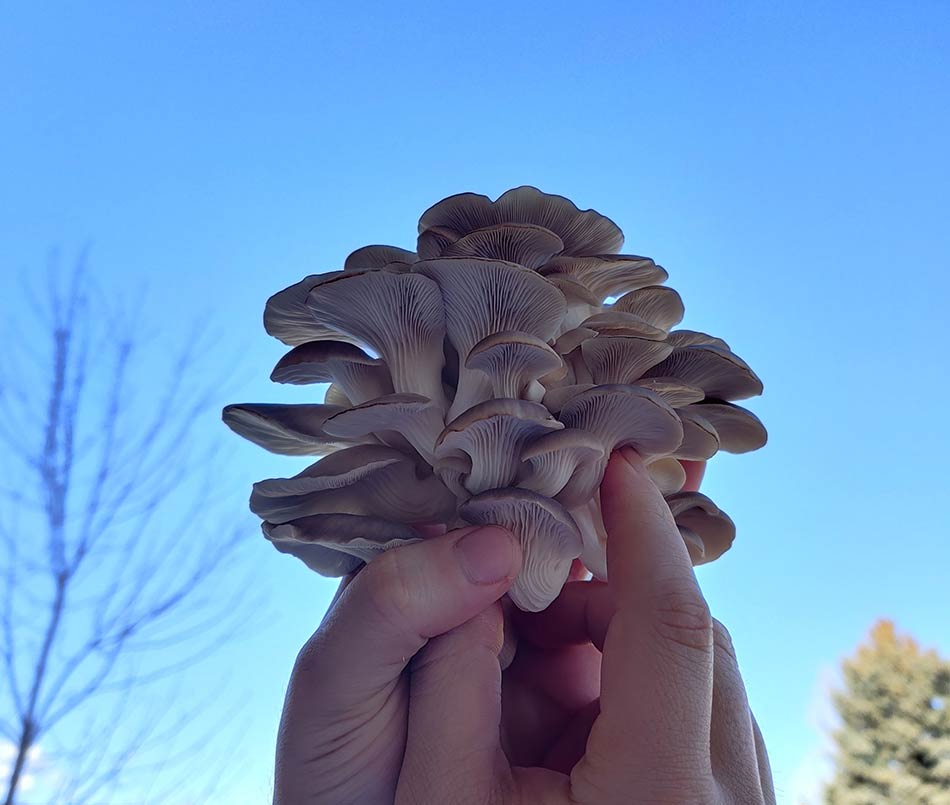
Why Mushrooms Matter

Fungi are often referred to as the great recyclers of life on Earth, but they are so much more. Fungal organisms are a central part of all ecosystems. They breakdown and balance nutrients, form symbiotic relationships with many organisms, and serve as food and medicine for many animals including humans. Fungi are the ambassadors of balance and biodiversity, and in this time when the health of people and the Earth is in a rapid decline, it is important for people to come together and ally with the Earth to rejuvenate and reverse the loss of biodiversity on the planet. Our Fungal allies are greatly underappreciated, and here at Mother Mycelium we are passionate about sharing the overwhelming importance of these ubiquitous life forms.
Nature’s internet
Your brain, the internet and mycelia all share the same archetype of optimized connectedness. Under the soil and out of sight, fungi connect all plants in the forest continually balancing nutrients and facilitating communication. This physical connection allows vast networks of organisms to respond instantaneously to stimuli. We often think that intelligence must arise from a neural system like in our own brains, but these complex networks of connectivity are what make fungi so intelligent. Eye-opening research related to this amazing fungal connectivity demonstrates intelligence of a completely new caliber. The same fungal organism can connect the roots of many individual trees and balance sugars and other nutrients as needed. In a study published in the Nature Research Journal, different tree species were connected to one another with a common mycelium, and nutrient transfer within the mycelium was tracked via radioactive carbon. Three trees received different amounts of sunlight, one received full sun, another partial sun and the last received no sunlight at all. Upon analyzing the nutrient transfer, Simard et al. (1997) found that the mycelium proportionally transferred excess sugars from the tree receiving full sun to the two trees that were deprived of sunlight with the tree in full shade receiving the most nutrients. This remarkable research shows just one of the many ways fungi enable communication and promote balance across entire ecosystems.
Mycorestoration
Along with balance and communication, fungi facilitate health and restoration of ecosystems. From contaminated water and soil to overuse of pesticides and an epidemic wiping out native and honeybees, the health of many ecosystems is in alarming decline. Surprisingly, people can ally with fungi to create affordable and sustainable solutions to all these pressing issues. Not only are fungi great recyclers, they are great cleansers as well. We can harness mycelia in innovative ways to serve as soil cleansers and biological water filters. Mycelium can be grown in soil that has been heavily contaminated with harmful petroleum hydrocarbons. As the mycelium grows throughout the soil, it consumes these harmful contaminants and breaks them down into harmless molecules like carbon and oxygen. In a study done in Washington, Thomas et al. (1998) found the total petroleum hydrocarbon count in contaminated soil to be reduced from 20,000 ppm to 200 ppm in just 8 weeks. On top of rapidly cleansing the soil, the mycelium fruited edible mushrooms which attracted insects and in turn attracted birds and other animals. This once desolate, contaminated site turned into an oasis of life thanks to the power of fungi. Similar methods can be used to cleanse contaminated water run off such as water waste from agricultural site that is infested with coliform bacteria and other pathogens. Mycelium can be grown in burlap sacks and placed in these contaminated waterways. As the water flows through the mycelial filter, bacteria and other contaminants are trapped and consumed by the fungus – a very promising way to reduce the impact of commercial agriculture and other major sources of water contamination.
Another major issue that affects the health of all people and the entire planet is the overuse of pesticides and the rapid decline of bee populations. Over two thirds of our food supply is dependent on a thriving bee population. The overuse of pesticides and neonicotinoids has led to an alarming decline in bee health. Some entomologists say that one hundred percent of bee populations are affected by virus or disease. Again, fungi can be harnessed to radically change the course of the bee health crisis. Extracts of polypore mushrooms have been shown to strengthen the immune health of bees and reduce viral infections. In some cases, these extracts can show a 45,000-fold reduction in bee viruses (Stamets et al. 2018). Fungi can also help to reduce the need for harmful pesticides which are the foundation of poor bee health and many more issues. Entomopathogenic fungi can be used as a sort of natural pesticide by infecting and killing target insects.
Mycomedicine
Along with the many benefits fungi have for the health of the planet, they can also serve as food and medicine for all people. Mushrooms have been used in Asian medicine for thousands of years to treat everything from stomach ailments to inflammation and viruses. Only recently has conventional western medicine caught onto to the trend with scientific research. Most mushrooms have potent beta-glucans and polysaccharides that boost immune function, reduce inflammation and regulate cholesterol. Aside from these benefits, there are many mushrooms with unique benefits such as the Lions Mane mushroom (Hericium erinaceus). Lions Mane has been shown to have potent nerve growth stimulus factors (NGFs). These NGFs help your brain form new neural connections and help to fortify your existing neural connections. This unique mushroom shows promise for preventing the effects of dementia and Alzheimer’s disease. Another unique mushroom is the Cordyceps mushroom. This mushroom can help your blood absorb more oxygen and increase stamina. Psychoactive fungi also show much promise for clinical applications. Although federally illegal, groundbreaking research shows that psychoactive fungi are potent medicines for things like PTSD and treatment resistant depression. Despite these interesting findings, research on medicinal fungi is relatively limited and much work still needs to be done to uncover the plethora of medicinal benefits mushrooms have to offer. If you are interested in keeping up with the rapidly growing wealth of knowledge on medicinal fungi, check out the International Journal of Medicinal Mushrooms.
With so many pressing issues resulting in the loss of biodiversity and general decline in the health of the Earth, it is imperative that people come together to change this course of dominance and destruction. The power of fungi can help us reverse the damage around the earth and provide security for human health. Fungi are here to shepherd the Earth into a new era of synergy – it is up to all of us to listen and take action.
Sources:
Simard, S., Perry, D., Jones, M. et al. Net transfer of carbon between ectomycorrhizal tree species in the field. Nature 388, 579–582 (1997). https://doi.org/10.1038/41557
Mycoremediation of Aged Petroleum Hydrocarbon Contaminants in Soil https://www.wsdot.wa.gov/Research/Reports/400/464.1.htm (accessed Feb 24, 2020)
Stamets, P.E., Naeger, N.L., Evans, J.D. et al. Extracts of Polypore Mushroom Mycelia Reduce Viruses in Honey Bees. Sci Rep 8, 13936 (2018). https://doi.org/10.1038/s41598-018-32194-8
Latest Articles
Latest Articles

Mycology Glossary: Unlocking the Language of Fungi
Fungi are fascinating organisms, but the world of mycology (the...
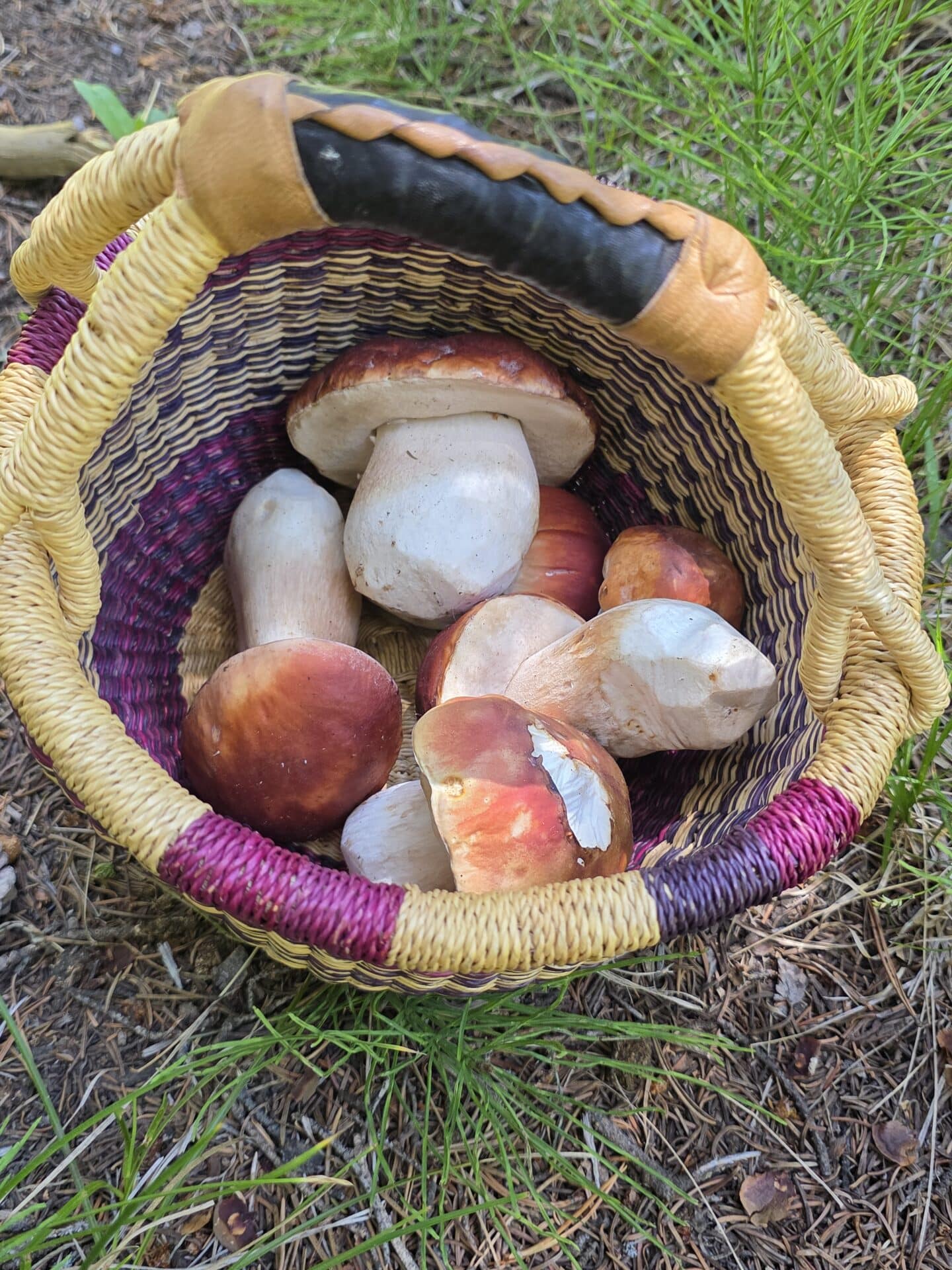
Introduction to Mushroom Foraging in the Rockies
Mushroom foraging is a unique adventure that combines hiking, nature...
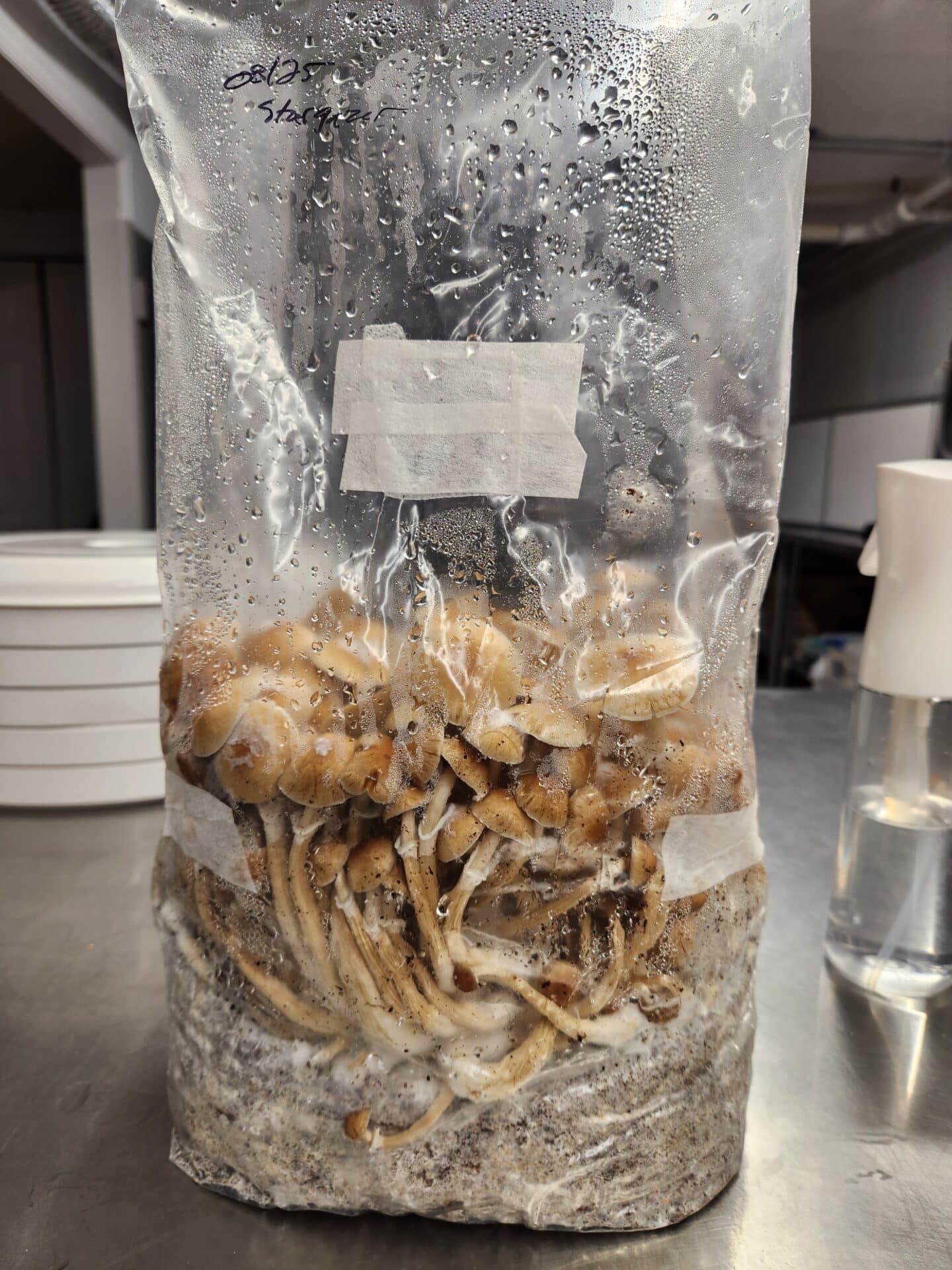
DIY Mushroom Grow Bags
Intro Growing mushrooms at home doesn’t have to be complicated...
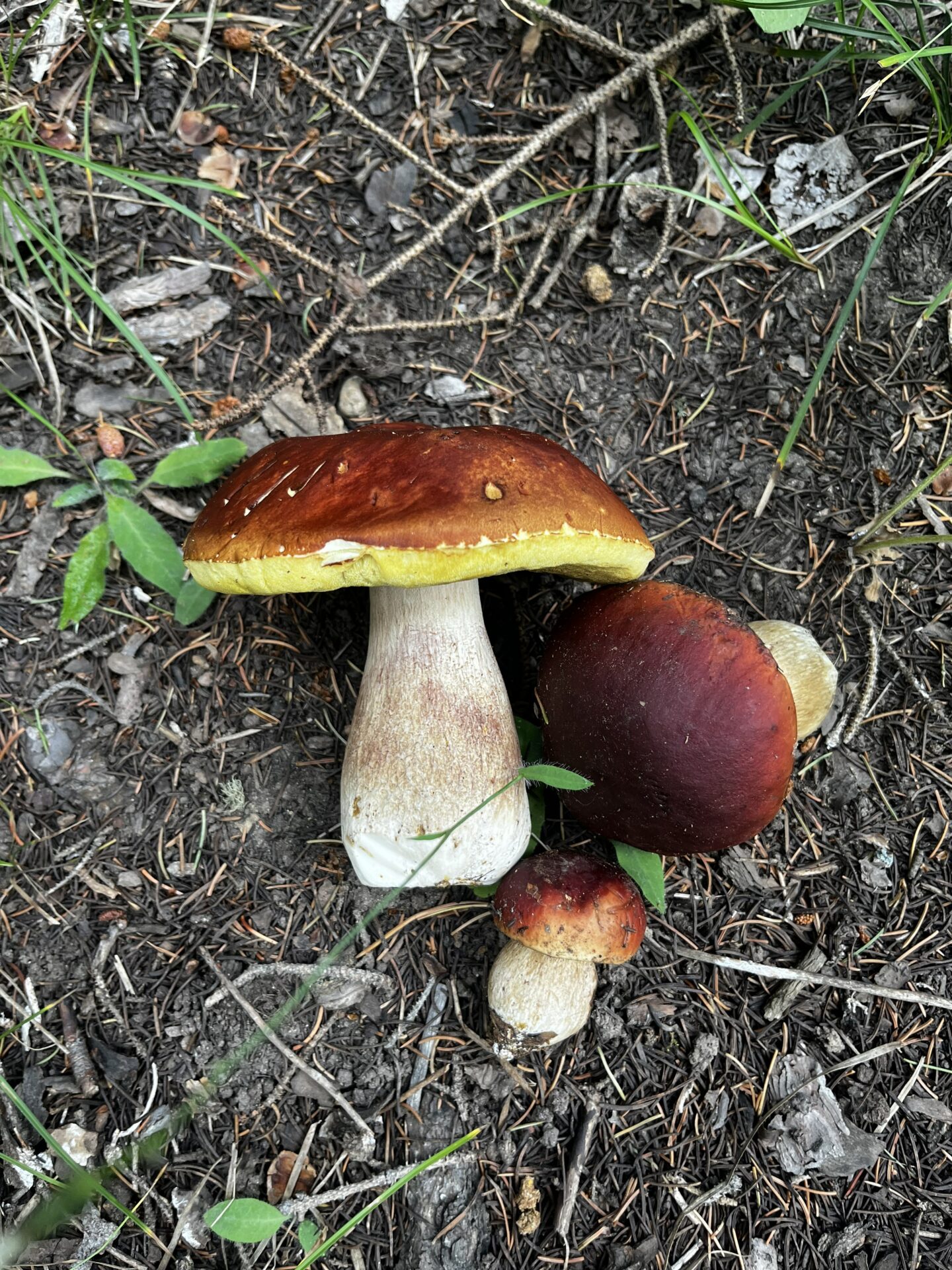
Colorado Mushroom Hunting Resources
Whether you’re just starting your journey into mushroom foraging or...
